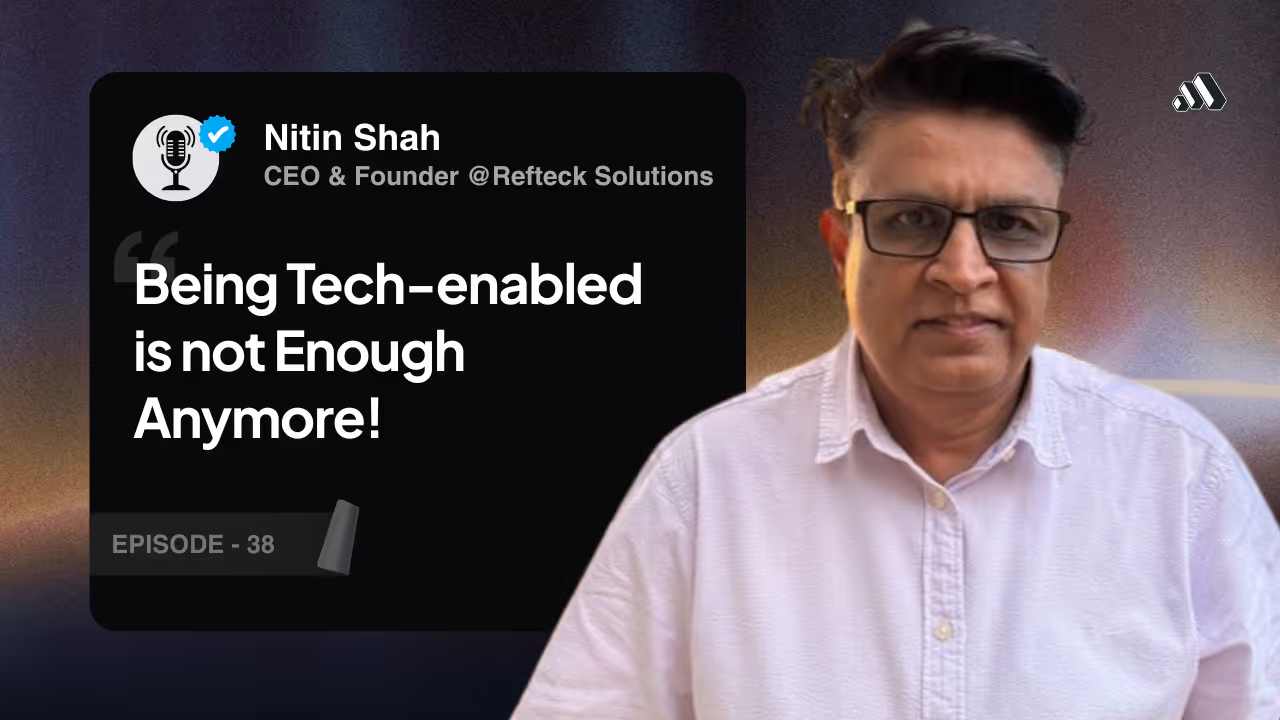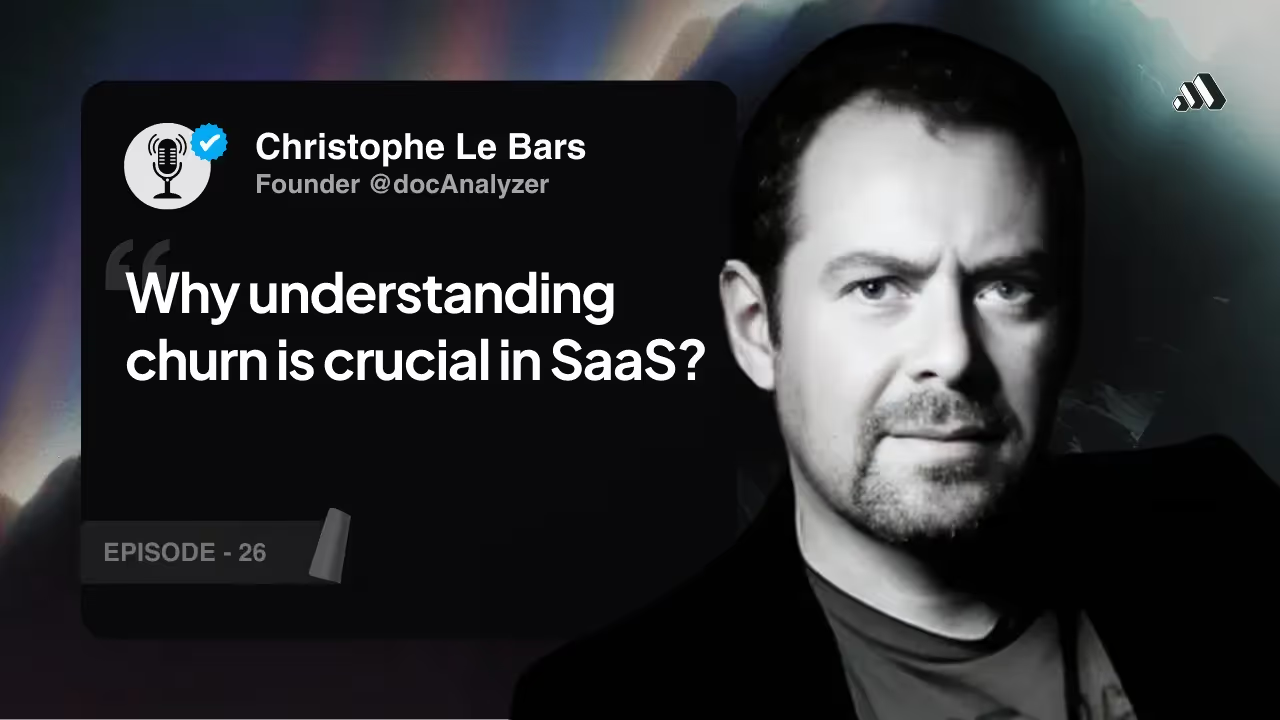How AppSumo was a game changer for this founder
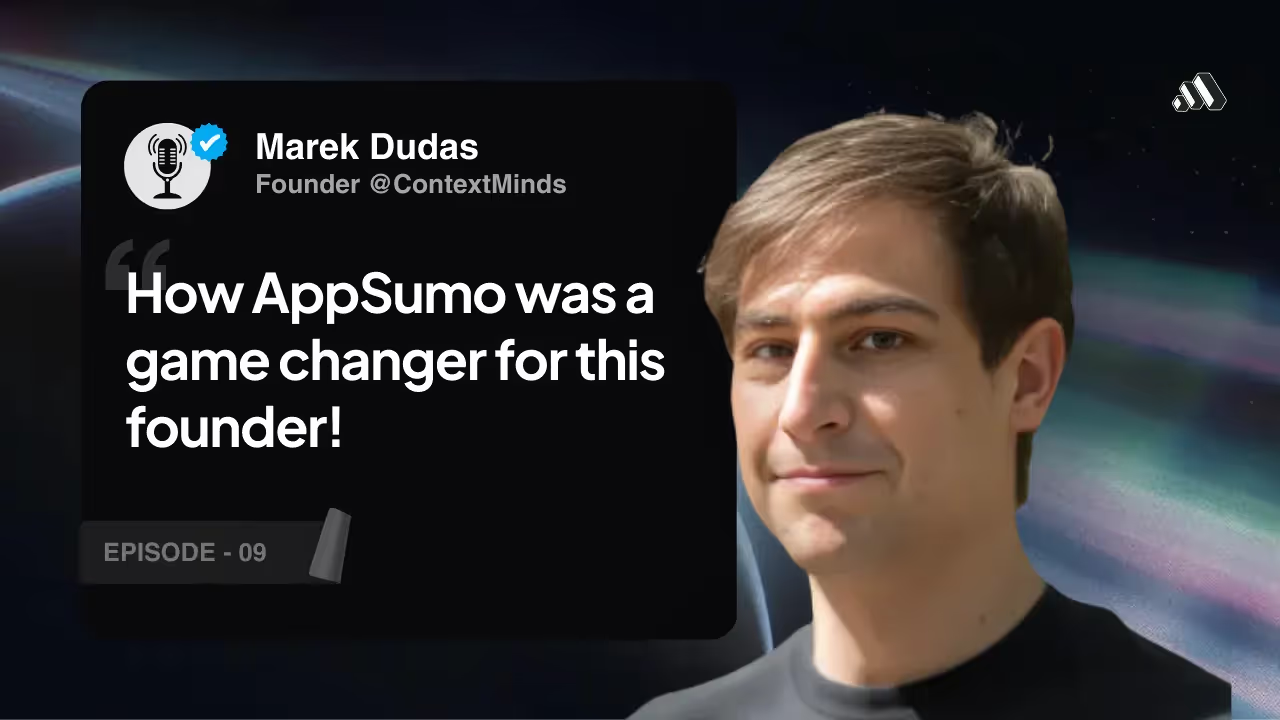



.avif)
Introduction
In this episode, Yash Shah interviews Marek from ContextMinds, a tool that helps content marketers ideate, research, and plan their content using AI. Marek discusses the problem they are solving, which is helping content marketers create complex and valuable content. They use mind mapping and AI to assist with brainstorming and research. Marek also shares their user metrics and revenue, mentioning that they have 40,000 registered users but only 200 regular active users. He talks about their successful launch on AppSumo and the pros and cons of using the platform. Marek also discusses their pricing strategy, which is based on cost and competitor analysis. Lastly, he shares their challenge of effectively communicating the value of their product to potential customers.
"AppSumo in those regards has built a great community."
- Marek Dudas
Key Takeaways
- ContextMinds helps content marketers create complex and valuable content using mind mapping and AI.
- They have 40,000 registered users but only 200 regular active users.
- AppSumo was a game changer for them in terms of getting feedback and acquiring customers.
- Their pricing strategy is based on cost and competitor analysis.
- One of their challenges is effectively communicating the value of their product to potential customers.
Transcript
Yash From Momentum (00:00)
Hello and welcome to Building Momentum, the show where we peel back the curtain on the exciting and often chaotic world of building a successful SaaS business. I'm Yash, your host for this show where every episode we bring you the stories and strategies of founders who've been in the trenches, conquering churns, scalling their teams, and building products that people and businesses love. In this episode, we'll be chatting with Marek from ContextMinds. ContextMinds helps content marketers ideate, research, and plan their content using AI. They're excited to hear their story and the lessons they've learned
along the way. We'll be dissecting the wins, the losses, and everything in between. So buckle up, grab your headphones, and get ready to dive into the world of SaaS. Hey, Marek. Thank you for joining in. How are you doing today?
Marek Dudáš (00:39)
Hi, I'm good. Good. Thanks for inviting me. Looking forward.
Yash From Momentum (00:43)
Thank you for joining us for this conversation. And I have a feeling this is going to be an interesting one, primarily because the problem that you're solving is one of the biggest challenges that stands in front of a content marketers. And so if you can talk a little bit about the problem that you're solving, who are you trying to help? How are you
Marek Dudáš (01:05)
OK, so we are trying to help mainly those content marketers or content writers. They want to create really complex, original content. So those guys that they don't want just to use ChatGPT to generate something and put it on the web and publish high quantity of texts and just be done with that.
We are focusing on the opposite, on people actually have some of own expertise or the client has some special unique expertise and wants to offer that to the audience and want to create some content that is really valuable and unique.
For that, they need to really think about it, think about what are the actual ideas they want to share, structure them properly, and look around on the web and other sources. What is already there? Put their ideas in the context. That's why context minds in the context of other.
Yash From Momentum (02:04)
Mm
Marek Dudáš (02:11)
existing existing content, other ideas. And that means, a lot of work, a lot of Googling, lot of brainstorming and, lot of structuring things. And that's why, that's why context minds is a visual tool using basically mind mapping or whiteboarding techniques. And, of course it is using AI to,
Yash From Momentum (02:17)
Yeah.
Marek Dudáš (02:32)
help with the brainstorming and also with the research by assisting and suggesting where to look next, what related ideas or topics to mention and so
Yash From Momentum (02:40)
Mm
I think one of the other interesting things that you'd also mentioned to us earlier was that context minds helps people think, right? Like in a structured format or in a visual format. And that's a really interesting definition, right? Which is, that's useful for content marketeers for sure, but then it can also be extended to other job roles as well, where they are able to use the information that's available on the web
because it's also using AI and then they are able to very clearly
actually look at a visual map of how they are thinking or what they are thinking. And it, of course, helps in communication, communicating ideas. also, of course, helps in a lot of other use cases as well. And so that's interesting. So from a size, scope, sort of state of context minds as we are today, would you be, can you, like for the people who are listening or watching,
Could you share with us how many users, many, like at what state or what stage we are?
Marek Dudáš (03:52)
Yeah, that's good question. Honest answer is we are still not doing enough measurement and enough analytics and watching the metrics. But in general, on the one side, have, I mean, like 40 ,000 registered users or people who signed up.
On the other hand, we have just about 200 regular active users who use context minds regularly. So, yeah, to give you some idea. yeah, from the point of view of like mostly record revenue,
there we are still rather at the starting point finding the ideal way to get to the paying customers. Most of the money or revenue we got so far was from AppSumo, where we were, I think, pretty successful. Yeah.
Yash From Momentum (04:42)
Mm -hmm.
So that's interesting, because one of the major challenges that first -time founders or early stage SaaS product builders face is, where do they get their first $10 ,000 in revenue? Who will?
trust them enough and discover them upfront and pay them, use their product and give them feedback as well. And I think AppSumo in those regards has built a great community. think it's 2 million people strong or a little more than that who very consistently look at absolutely new products that are there in the market who are trying to solve interesting problems.
and give it an opportunity. And then in certain cases, I'm sure you've experienced and we've experienced this when we also, our first launch also happened on AppSumo, is that they work fairly closely with you and help you improve the product, give you the requirements, get on calls with you, give you feedbacks, write reviews and things like that as well. Would you recommend, like what are your thoughts on, if I'm a first time product builder, what are your thoughts on launching on AppSumo?
Like if you can share some pros and cons, like for the first $10 ,000 in revenue or something like that.
Marek Dudáš (06:16)
Yeah, so for us it was quite a game changer. for similar founders, I would definitely recommend it because as you said, it's great for getting first revenue. It's great for getting feedback and yeah, getting
first customers, first users. Even if your product is far from finished, they are eager to try it and to search for the value in it and so on. So from the point of view, it's trade. And if someone else is in the situation like you are, I mean, we are two tech.
founders with no marketing expertise or experience. So we are really struggling getting to some users ourselves, trying to cold outreach on LinkedIn and so on with almost no success. And when we launched on AppSumo, was really...
amazing. was like users started pouring in like hundreds in first week. So that was great. Maybe on the other hand, I don't want to spend the whole time talking about Appsumo but for me it's like the biggest
Yash From Momentum (07:39)
Sure.
Marek Dudáš (07:40)
biggest topic of the last year and a half. So there are some things that you should keep in mind, I think, when you are on AppSumo. Because the users or the people, the community there is a bit specific. There are all kinds of people.
with various backgrounds. And they will try to use the product to completely different use cases than you originally designed it for. And then they will try to convince you to change it out in features so that it's changed their own map.
Yash From Momentum (08:11)
That's
Yeah, change the roadmap also a little bit.
Marek Dudáš (08:22)
they will try to force you into completely different direction and it's hard to keep your focus or keep a distance from all the feedback which will be all around going in different directions. And yeah, and you need to keep the distance and that distil from the...
various feedback distilled what is valuable for you and what will actually be useful to follow.
Yash From Momentum (08:51)
But interesting, So Net Net, think it's a good place to get your first dollars in if you don't have the go -to market. It can become your first GTM channel and give you your first 100 customers and things like that. great to know. So post -AppSumo, how do you, for context minds, when you decide that, hey, this is a feature that I want
How do you, what's the process like? How do you go about it? How do you, do you look at current user data of context minds or do you talk to customers or do you look at competitors or do you like yourself brainstorm and come up with new feature ideas for the product? Like how do you go about it?
Marek Dudáš (09:36)
Yeah, so the process is getting better lately, until quite recently, it was, I would say, not ideal. I would not recommend following that process because it was mostly internal brainstorming and then following intuition.
I mean, still based on, I I had hundreds of calls with users and read, yeah, tens of reviews and questionnaires, but still I used my own intuition a lot. But yeah, recently we started looking more at
competition and most importantly, we implemented better analytics into the product and we are actually analyzing what features the users use, how often they use it and try to decide more based on the data and not just intuition.
Yash From Momentum (10:39)
are fair points here and so like at this point of time from a context mind standpoint, one of the things that I'd love to understand is
How do you, like in terms of the thought process behind pricing, one of the things that I, when I look at context mind's website, is a category creator of sorts, right? So there are other platforms that exist, but they only do part of those things, right? So you'll see a mind mapping system, you'll see a keyword.
keyword analyzer or tracker and stuff like that. But there are three, four different systems that I would have to use. then, because this is a category, it didn't exist before you started building for the new one.
And so for one of the, like there are good things about creating a category, but one of the biggest challenges about creating a category is you don't know how to price whatever you have built. Because, so just to understand like how do you think about pricing, how do you come up with the pricing for context minds, what do you do on those flags?
Marek Dudáš (11:38)
Yeah, that's also a good question. So another interesting point for our pricing is that we use external APIs a lot, where you basically pay per request or per amount of data that you use. So the more a user is using context minds,
the more it costs us and then those external data, external APIs like OpenAI and ChatGPT, keyword data and so on. Those costs are probably the biggest variable costs that we have per each user. so that's...
So estimating how much each category of user will use each type of data and trying to come up with the cost. So the short answer is that the main...
data that we use to determine our pricing is like cost -based. Then we also look, of course, at our competitors, even though, as you correctly said, there is no direct competitor, like a tool with least similar set of features. So we can look
keyword research tools and their pricing. We can look at mind mapping tools and their pricing. the problem is that even if we have some keyword research features, but we don't have all the features of, for example, Semrush. So if someone is looking at us,
I think they won't see a direct Semrush alternative in context mind so we can't start our pricing at $100 per month like Semrush has. So it's difficult. what we tried now, we actually changed our pricing like literally yesterday. We tried to create
Yash From Momentum (13:38)
Okay.
Marek Dudáš (13:40)
plants that offer less amount of data per month but are cheaper. So we now have similar, the starter plan has similar pricing as, for example, Miro, one of the most well -known mind mapping tools because I think the first thing that
user seeing us is, it's a mind mapping tool, and then they look at other mind mapping tools. so if we had our... sorry, sorry.
Yash From Momentum (14:14)
If there's a direct head -to -head sort of a comparison between Miro and context minds, it sort of would be fairly easy for them to compare. So, you are right.
Marek Dudáš (14:22)
Yeah, yeah, yeah, that's right. And so we don't want to have cost $30 when Miro costs $8. So we tried this. I have a very, very cheap starter plan. So if people have chance to say, OK, it's just a few dollars, I will give it a chance. And then after they spend another month,
in the product, they will start seeing the value and maybe hopefully switch to a higher plan or just stay at the starter plan because they are not creating complex content every day, but just once a week, for example. So the starter plan is enough for them.
Yash From Momentum (15:01)
Enough, yeah.
I think there are two insights that I'm able to pick up on from this part. So the first one is that if the platform has third party integrations which are important for the platform's users to get value, then it's extremely important for us to be able to.
predict or estimate how much of those APIs are our users going to consume. Because if we don't do that prediction correctly, then every customer that we acquire can basically make the company lose more money. So if the company grows, it starts to make heavier and heavier losses, which is a
Marek Dudáš (15:38)
That's right. That's right.
Yash From Momentum (15:46)
which of course is a great challenge and issue. But the second thing and I just want to make sure that I am able to understand this correctly, would it be fair to say that the current pricing experiment that you are running is that you look at when you are creating a category, you look at what
three or four tools that you are replacing and identify the one that you resemble the most and then start your pricing as an equivalent to their smallest plan. that when a user is looking at your pricing page and when they're comparing the other platforms, in context mind's case, they're comparing you.
So they're able to see that, okay, Miro costs, let's say $8 per user per month. Context Mines costs, let's say $9 or $7, somewhere in that range, plus or minus 10%. But then now my thought process is, okay, if I use Miro, I can only use mind mapping. But if I use Context Mines, I can do mind mapping, but then I can do these four other things as well. And so the barrier to entries significantly lesser. And then you can always have limits and you can always have
upgrade touch points so that they move to the higher tier as and when they discover more and more value. Would that be a fair way to sort of say that? Interesting. Got it. Got it. That's interesting. So this brings us towards the end of our conversation. And one of the things that we do at Building Momentum podcast is that we have
Marek Dudáš (17:00)
Yeah, yeah, that's exactly my thoughts.
Yash From Momentum (17:14)
we ask a question that our previous guest had asked. And then you'll also have the opportunity to ask the question to our next guest as well. But for you, the question that I have from our previous guest was, Chirag from with Blaze, was that at what point
in a SaaS company's journey, should a founder think that they... So founders in early stages are wearing multiple hats. But what metric needs to be achieved or what event needs to happen after which the founder can say to themselves that ok, I have played the generalist role for these three or four activities that our company used to do. Now it's time for me to stop
thing A and recruit a specialist to do that better. And I'll find sort of what I am really great at and I just continue doing that. So at what point do you think the early team, the leadership team or the founder team should move away from being a generalist and like focus on being a specialist or recruit a specialist as well?
Marek Dudáš (18:12)
Hmm. Yeah, that's a very good question. Yeah, I'm actually thinking about it, about it quite often. okay, so one quick answer would be like as soon as you can afford it, but then it's hard to determine whether you can afford it. I mean,
Yash From Momentum (18:27)
Okay, cut it. Yeah. Yeah. Yeah.
Marek Dudáš (18:32)
Okay, sometimes you are on such a low budget that it's clear that you can't, but sometimes you have some cash flow. And then from the point of the cash flow, okay, there's money that you could spend for an extra team member. But then you have to determine whether the extra...
Yash From Momentum (18:36)
Yeah. Yeah.
Marek Dudáš (18:57)
team member will actually be able to fully replace you for the amount of money that you expect and so on. So yeah, but I don't want to talk about that too much and I'm definitely not an expert. Maybe what I can say is I of course started with the wearing many hats situation.
And now I'm gradually moving to hiring extra team members for the things that I either hate to do, I don't like, or I know I'm not so good at and someone better should replace me. And it takes a lot of time.
You have to be patient, but I would definitely say that it helps a lot, even in our situation that we are still in quite early phase. It's a big improvement. There are people who would say that you should keep wearing...
many hats, I mean, for I don't know how long, but I'm not so much fan of that. And yeah, so another criteria is what I maybe already said. if you, that's like a more, more like intuition, can, it is not a number, but if you start seeing that something that you are doing,
is taking either taking so much of your time or making you so tired or you hate it so much that it's damaging the quality of that part of your work, then it's time to try to find someone else even at the cost that you will have to get some extra funding because I think it can actually kill, I would say almost kill the business.
when the founder is buried in a work that he can't do and does not want to do and then it's gone.
Yash From Momentum (20:56)
Yeah, yeah, because it also ends up reducing productivity for the things that you like to do. So because if you consistently keep on doing things that you don't like, but you have to.
Marek Dudáš (21:00)
That's right. That's right.
Yash From Momentum (21:06)
It also impacts your ability to do things that you like to do or that you're good at and so on and so forth. And so this brings us to the last part, which is where what's your big question? What's the big question that you are currently battling with while you're building context minds, while you're building the SaaS product that I should ask to my next guest?
Marek Dudáš (21:24)
Yeah, for us, the biggest challenge or question. So I would like to have these kind of questions like, should I hire someone else? But we are still struggling with the question of how to present the value of our product.
to the potential customers in a way that they see it immediately and are able to decide whether they want to buy or not. And I'm thinking about whether we should try searching for a kind of an agency or external expert that will help us find this, produce some explainer videos or things like that, or whether we should
Yash From Momentum (21:58)
This is an exercise, yeah.
Marek Dudáš (22:05)
keep trying to do this internally and by learning from our mistakes, find the right way.
Yash From Momentum (22:13)
This is, so I tell you what, in my very limited experience, finding the best way to communicate the value that we are offering as a company or as a platform.
is a question that cuts across all stages. So this is a question that you have, even at 10 million in annual run rate. And this is a question that I've seen, I've spoken to founders who are publicly listed. Their SaaS companies are publicly listed. They're still sort of working on this as a problem statement, that how do I make sure that I'm able to effectively communicate the value we can create for our customers? And so they're positioning and stuff like that. it's
It's sort of a breathing, living breathing document, the positioning statement that you have because what happens at a 10 million run rate or 50 million run rate is that your ICP, your ideal clients would change. So you go from having one definition to multiple definitions.
And so of course, you're trying to answer it at a different scale, but it's still the same question. Because now you're not just catering to content marketers, but you're also starting to cater to leadership teams who are trying to organize their meetings, as context minds at 5 million in Andorra. So these are sort of questions that cuts across. And thank you for making it difficult for our next guest. It's a great question for me to ask.
But anyway, thank you for thank you, Marek, for joining us on this conversation. Thank you, everyone who was listening or watching this. Wherever you are doing that, whether it is YouTube, Spotify or Amazon Music, you'll be able to find the link to Context Minds in the description. If you would like to visually put your thoughts onto a screen, I would strongly recommend giving Context Minds a try. And if you're a content marketer.
for sure, it brings the capabilities of three or four different platforms that you use in your content planning stage into just one product. And now, as we also found out, in the newest plan, it starts at around $8 a month. So you should definitely give that out a try as well. Thank you for joining in, and we will see you again at Building Momentum. Until next time, bye.
The inbox update you’ll never want to skip
A quick catch-up with ideas, wins, and tips worth stealing, straight to your inbox every week.
The easiest way to reach us.
Share your details and we’ll get back within 24 hours.
Podcast
A plethora of insights,all in one place
From strategy to execution. All the big ideas, practical guides & fresh perspectives that’ll help you scale with confidence
Ebooks
Comprehensive guides that break down the shifts in business and technology, Helping you lead with clarity.

Office Hours
Your direct line to our experts. Practical advice for scaling, right when you need it.
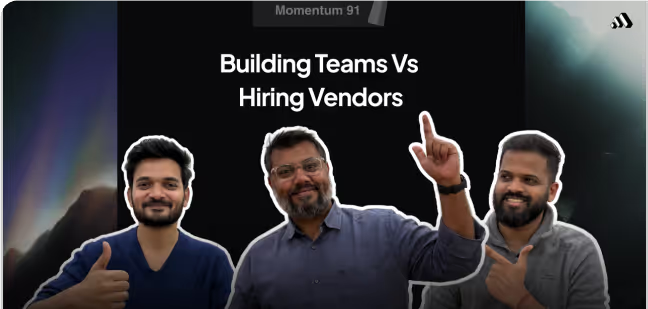
Reports
Data-backed perspectives on where industries are headed, giving you the foresight to make bolder moves.
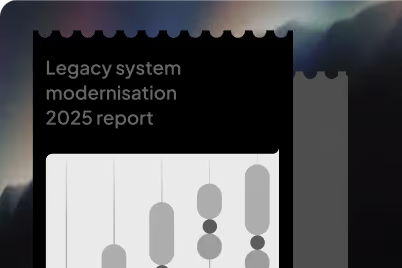
Newsletter
A quick catch-up with ideas, wins, and tips worth stealing, straight to your inbox every week.
.avif)
Podcasts
Conversations where you get to know everything from the ones who know it best.
.avif)
Your Offshore Development Center, Done Right
Access top-tier global talent, enterprise infrastructure, and complete regulatory compliance through our proven model.
Start Now




